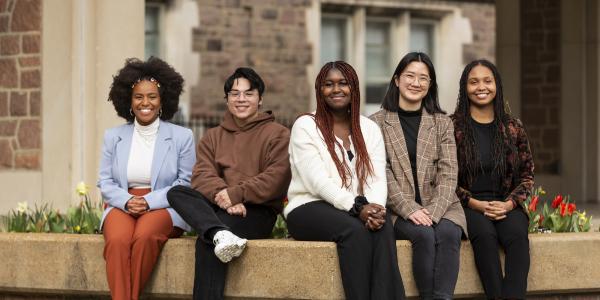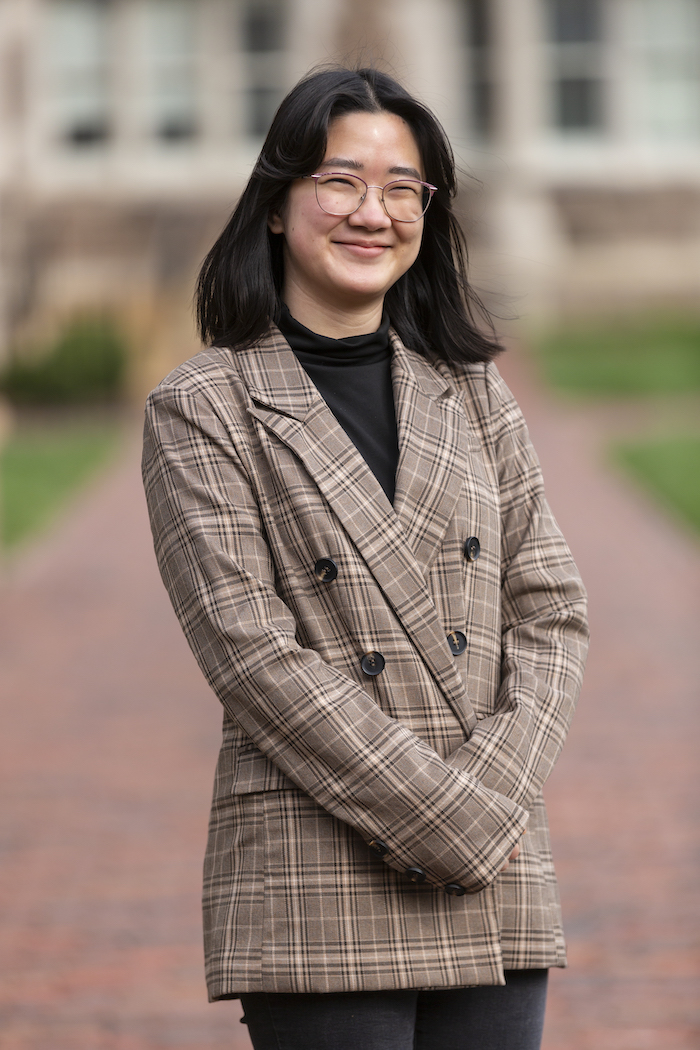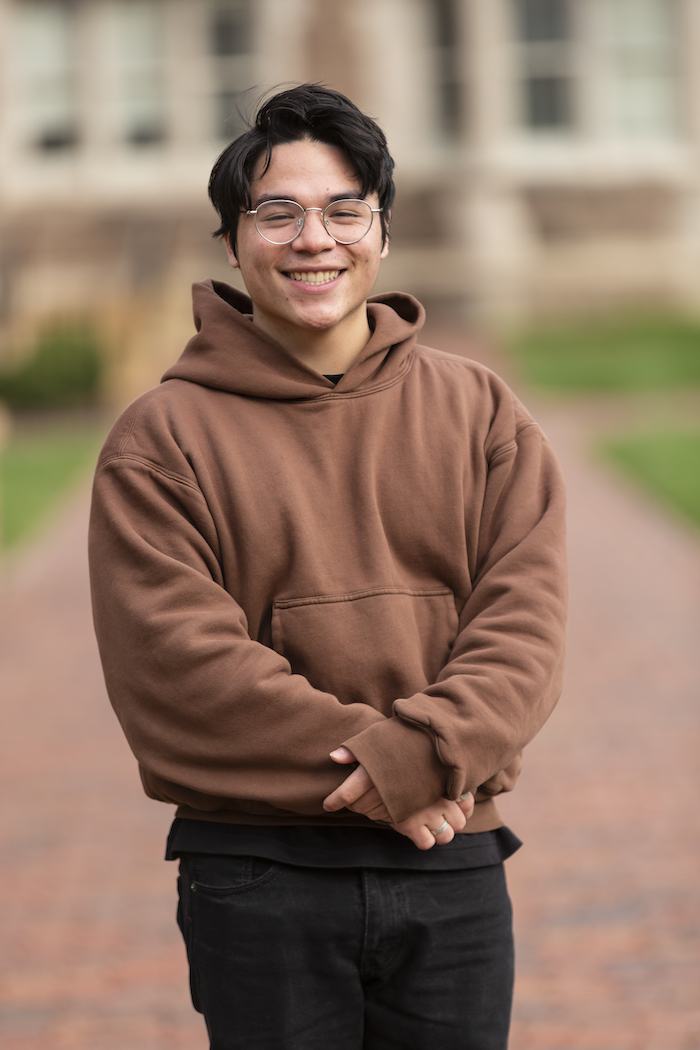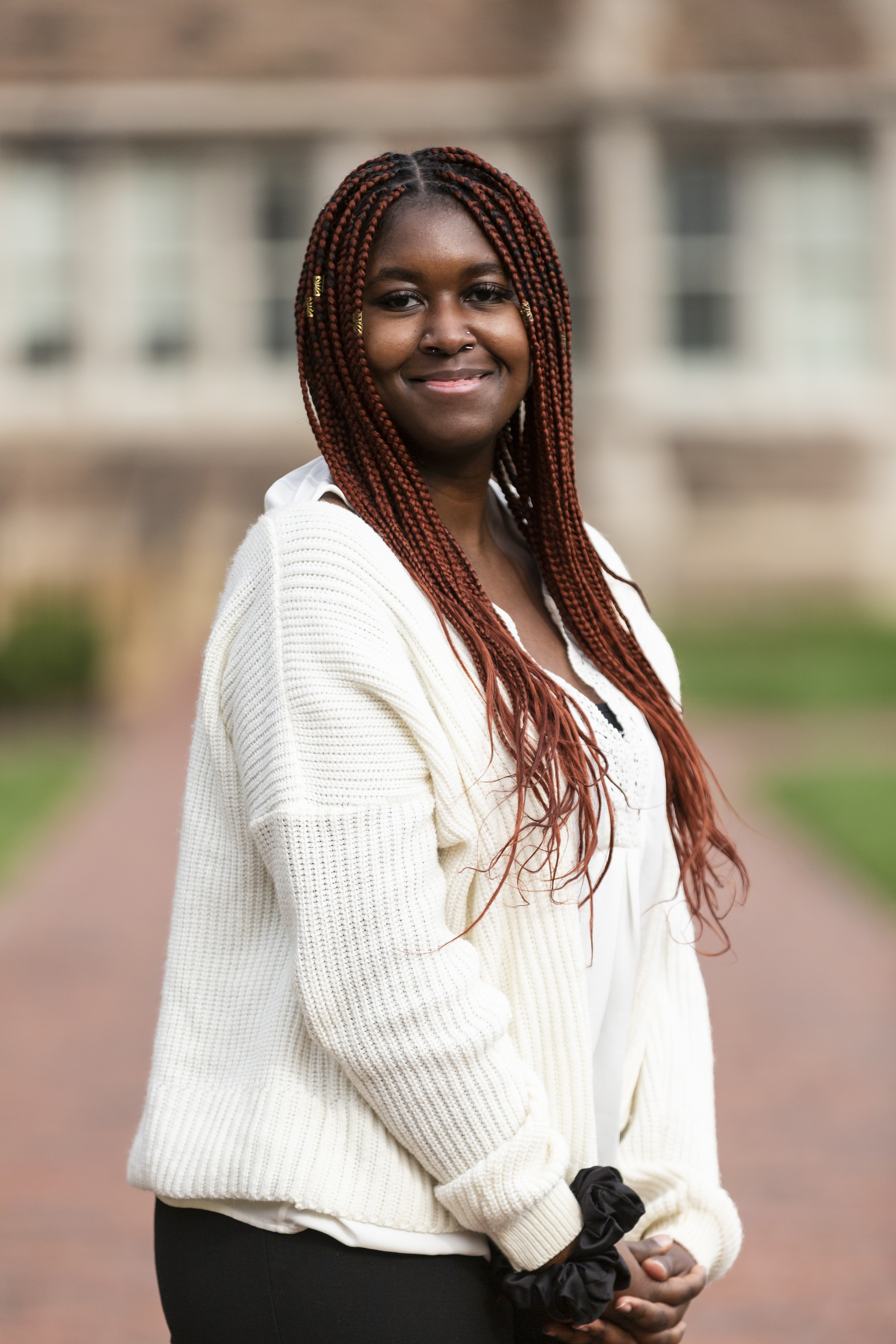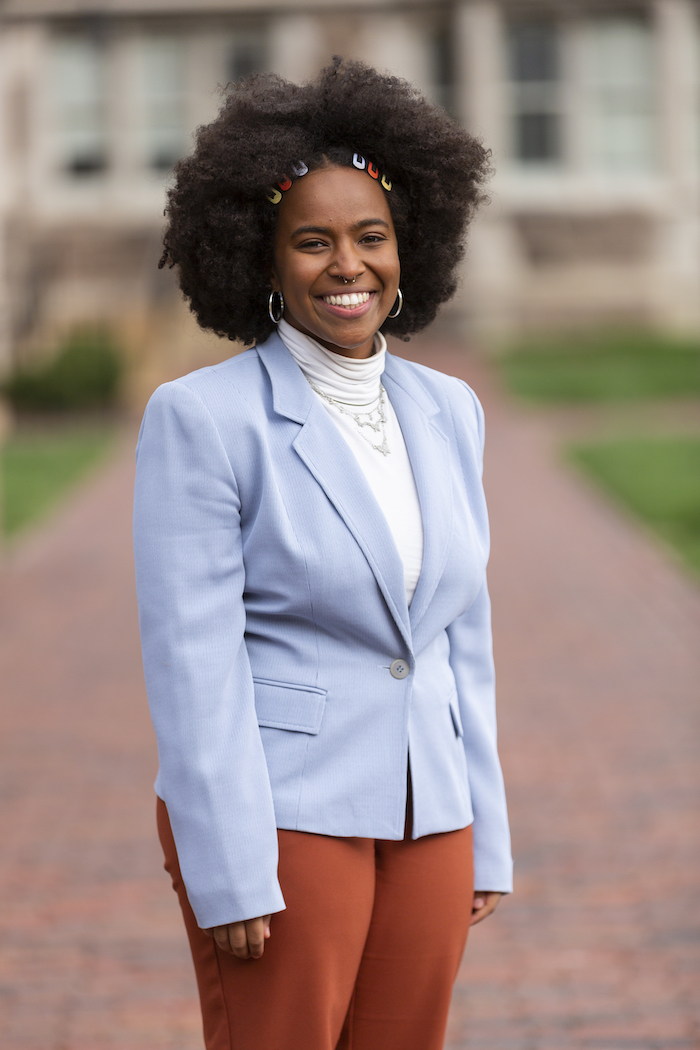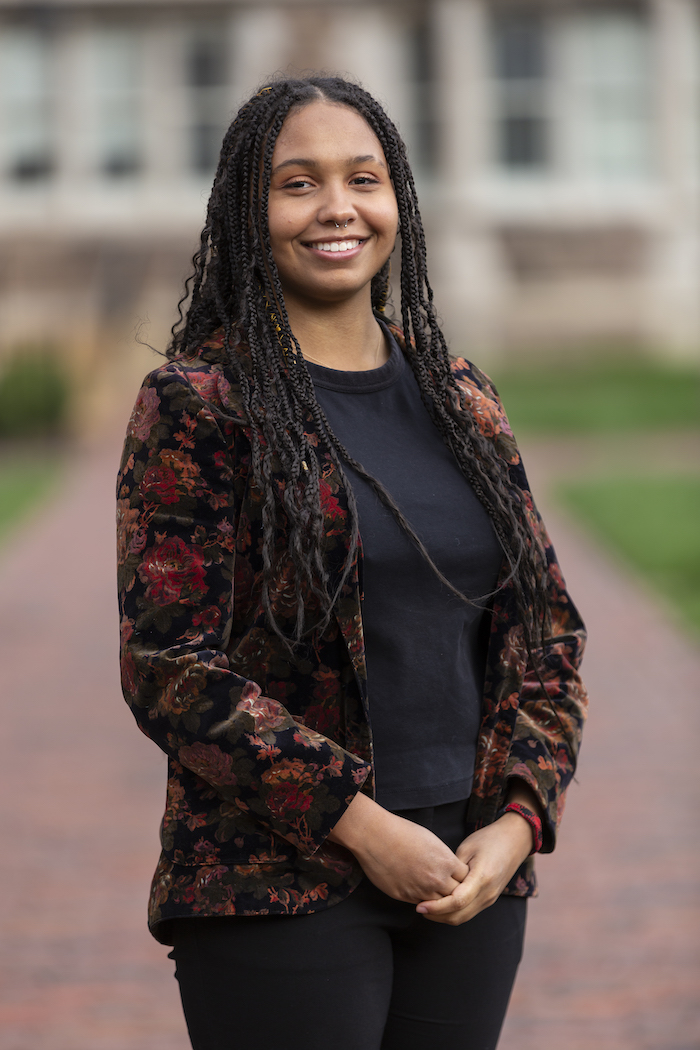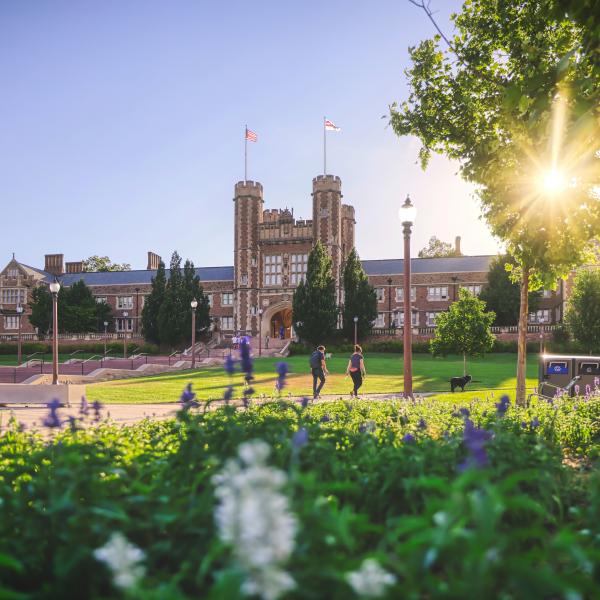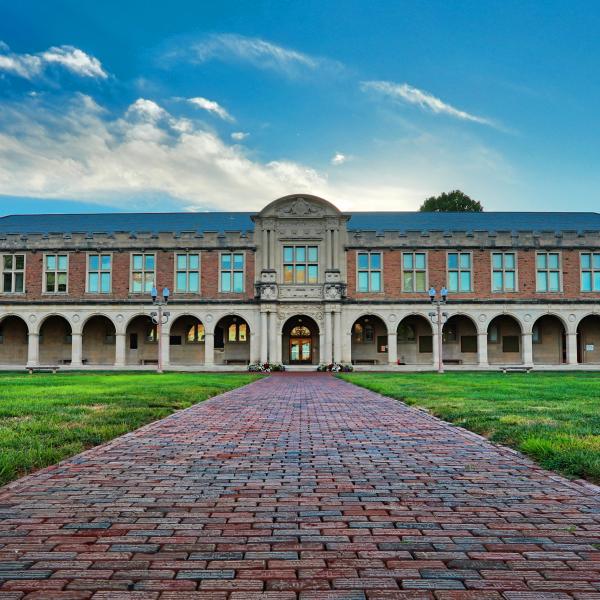Over the past 30 years, the Mellon Mays Undergraduate Fellowship program at Washington University has been a positive force for diversity in humanistic research.
The Mellon Mays Undergraduate Fellowship (MMUF) program celebrates its 30th class of undergraduate research fellows in 2022. Starting this fall, five new fellows will pursue research in the humanities or humanistic social sciences with the guidance of a faculty mentor over a two-year fellowship. Many of the projects involve an emphasis on social justice and diversity.
The five fellows join a distinguished group of scholars dating back to 1993. The late Dean James McLeod led the effort to create an MMUF program at Washington University, joining a consortium of colleges and universities seeking to increase faculty diversity by funding student research.
“The program has created more opportunities for students of many backgrounds to pursue humanities research at WashU, helping them to have greater relationships with faculty mentors,” said Wilmetta Toliver-Diallo, assistant dean in the College of Arts & Sciences and the MMUF program coordinator. “Now that Mellon program alumni from throughout the country have come to WashU as graduate students and faculty members, we definitely see how impactful this single program has been on faculty diversity here on our campus, and we are quite boastful of how our WashU Alum are having an impact as graduate students, faculty members, and university administrators on campuses throughout the country and globe.”
Mellon alumni from WashU and other consortium institutions can be found in numerous departments in Arts & Sciences. Michelle Purdy, associate professor of education and director of the undergraduate program in educational studies, was a Mellon Mays fellow as an undergraduate at WashU. Three more faculty members were MMUF graduates of other institutions – Lauren Eldridge Stewart, assistant professor of ethnomusicology, was an undergraduate fellow at Spelman College and later a post-doctoral fellow with the UNCF/Mellon program; Chris A. Eng, assistant professor of English, was a fellow at Hunter College; and Karma Frierson, assistant professor of African and African-American studies, was a fellow at Harvard University. Rebecca Amonor, a doctoral student in English, was a Mellon Mays fellow at Yale University.
Within the MMUF program, undergraduate fellows build close relationships with faculty mentors. Faculty learn about fellows’ research interests as well as their interests outside of academia. “Some of them are performers or poets, and many of them are political organizers,” Toliver-Diallo said. “In our intimate space, we get to see and know more about them than would otherwise be possible. I believe just getting to know each fellow holistically and develop a personal relationship is a fundamental aspect of our success.”
“Thirty years is a tremendous milestone for WashU’s Mellon Mays Program and we are very fortunate to be able to show our students examples of Mellon’s success at various stages of the academic journey from undergrad through tenure,” said Jonathan Fenderson, associate professor of African and African-American studies and director of the MMUF program. “Our new cohort is incredibly talented. I’m excited to see how they carry on the Mellon Mays tradition and also find ways to be innovative and push the boundaries of the American academy—which looked remarkably different 30 years ago.”
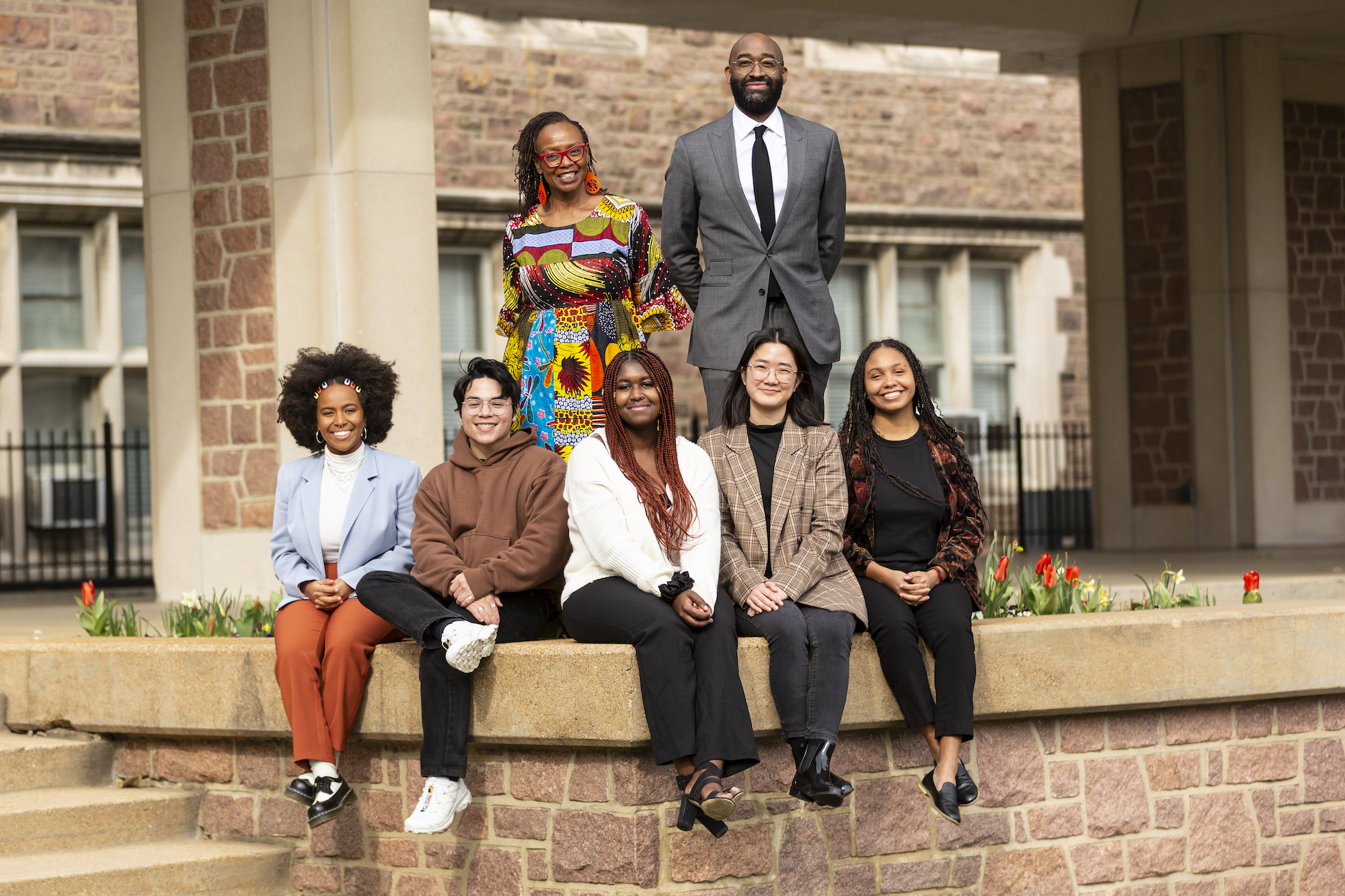
Meet the 30th cohort of MMUF fellows
Annie Chang
Major: Sociology
Project Title: “Citizen or Foreigner? The Racialization of Chinese International Students during the Cold War”
The Cold War was fraught with tension, especially with the newly established People's Republic of China. Historically seen as the "foreign other," Chinese Americans were subject to accusations of being spies and government surveillance programs. In a similar sense, Chinese international students also had to contend with the same sort of accusations, but they also faced an immigration policy that severely restricted their ability to return to their homes, thus leaving them no choice but to settle in the United States. This project will analyze how public policy combined with anti-communist attitudes created a racial project towards Chinese international students during the Cold War. The project will look at citizenship status and immigration policy as markers of racialization.
Lucas Veloria
Majors: Political Science and Philosophy
Project Title: “Historical and Normative Analysis of the Pink Tide Movement of Latin America”
Project Description: Primarily, this project has three goals. Firstly, the project aims to analyze and generate a narrative towards understanding the history of material exploitation in Latin American countries that served as the precedent to the Pink Tide movement, a shift towards leftist style of governments throughout Latin America. Further, the project aims to understand how two of the most prominent regimes, that of Bolivia and Venezuela, actually rose to power. Finally, the project includes a normative level of analysis as to answer questions towards what went right and wrong within these models of government.
Ad’Mirel Durden
Major: Sociology
Minors: Political Science and Legal Studies
Project Title: “’I Can Do Bad All By Myself’: How Hyper-independence Within Black Women and Black Femmes Impacts Their Interpersonal Relationships”
Project Description: This project will examine the socialization of Black women and Black femmes, which can result in the adoption of hyper-independence as a survival tactic, and how hyper-independence influences the nature of their various interpersonal relationships: platonic, familial, romantic, and self. The project introduces the concept of “hyper-independence” as a behavior that Black femmes and Black women employ to navigate and survive in a white supremacist society. A sociological lens and methodology will be used to understand how hyper-independence manifests into Black femmes and Black women’s daily lives and informs their relationships not only with others, but also themselves. This project hopes to center Black femmes and Black women’s experiences with hyper-independence.
Maya Phelps
Major: African and African-American Studies
Minor: Sociology
Project Title: “Carceral Definitions: How Definitions of Permanency and Neglect Result in Systemic Violence for Black Children”
Project Description: MaKhia Bryant, a Black foster care girl, called the police for help because she was being threatened, and in turn, police murdered her because of their own biased discretion and carceral logics. The reliance on personal instinct and punitive action reveals one reason why MaKhia’s death happened: the intersection of foster care and policing. This project will explore both the carceral, punitive history of Child Protective Services and their implications on the lives of Black youth in the foster care system. The first component will contextualize 20th and 21st century legislative decisions in perpetuating racialized standards of child neglect and permanency that disproportionately impact low-income Black families and will interrogate the historical connections between these institutions, drawing on archives and legislation to do so. In the second component, the project employs methods of Black Feminist Ethnography and in-depth interviews to center authentically the voices and lived experiences of young adults who have lived through foster care. The project centers, supports, and protects the humanity of foster care youth while understanding and contextualizing the vulnerabilities they experience.
Tori Harwell
Majors: African and African-American Studies and Women, Gender and Sexuality Studies
Minor: Environmental Analysis
Project Title: “Black Eco-feminism"
Project Description: Black eco-feminism is an interdisciplinary research project that explores the responses of Black people to environmental injustice and the knowledge created through their forms of resistance. Environmental injustices, such as illegal logging of hardwoods, illegal gold mining, food swamps, and the influx of white settlers, are experienced differently based on race, sexuality, and gender. Thus, the response to those injustices by Black people is unique and essential to creating more just societies for all in the future. Furthermore, the centering of indigenous African epistemologies around the environment is quintessential to solving climate change on a global scale. This project will help create a framework to link seemingly disparate connected geographical locations and bridge their responses to environmental injustices under the umbrella of indigenous African beliefs systems.

